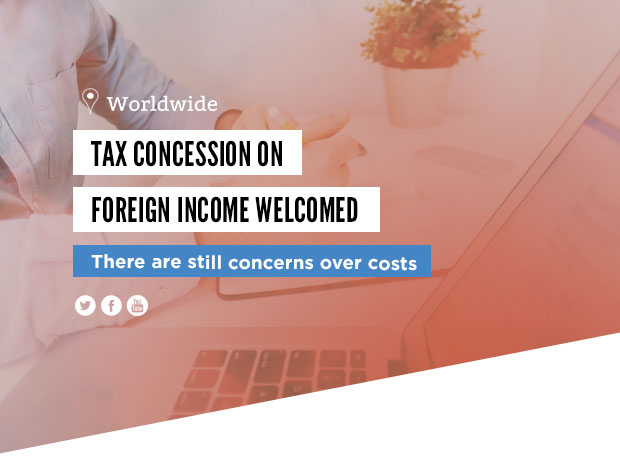Tax concession on foreign income welcomed – There are still concerns over costs
By Amanda Visser
The latest tax concessions for income earned by South Africans abroad are welcomed, but concern remains about the cost of employment and the additional administrative burden.
According to the concessions, South Africans will get tax exemption on the first R1 million of their foreign income. The date on which the new tax treatment will come into effect, has been delayed by one year, until March 2020.
The concession was made after more than 8 000 complaints were received on social media. The National Treasury also received about 1 300 formal submissions from companies and individuals about the initial plan to revoke the exemption. The initial proposal was announced in July’s draft Taxation Law Amendment Bill. The Treasury announced its new amended proposal last week (Thursday 14 September) during a session of the parliamentary standing committee on finance.
Patricia Williams, tax partner at the law firm Bowmans, said the R1 million exemption will take a huge number of South Africans working abroad completely out of the South African income net. “Normally, anyone who earns R1 million income will be taxed at 41%, and the tax rate can increase to as much as 45% if the income is above R1.5 million.”
The amended proposal means that the first R1 million is now exempt, and that the tax sliding scale then comes into effect on the rest of the income. The sliding scale begins at 18% for revenues above R75 750 to R189 880. “The new proposal on foreign income exemption will actually only affect high-income earners, and only those who cannot change their tax status before 1 March 2020, when the proposal comes into effect.”
She says it’s not that difficult for South Africans to change their tax status if they work in countries that currently have double tax treaties with South Africa. However, there is a capital gain tax on global assets. It does not include South African real estate and “personal use assets” such as private cars, boats or caravans.
The National Treasury has admitted in its submission to the standing committee that the overall effectiveness of the exemption may have a serious negative financial impact on South Africans who earn lower incomes abroad.
Erika de Villiers, head of tax policy at the South African Institute of Tax Professionals (SAIT), said the remuneration packages for South Africans who work in certain African countries in particular, are high due to additional benefits such as safety and security grants, housing allowance, airline tickets to South Africa and international schools for children. “If the higher salary and all the benefits are taken into account, then R1 million will be absorbed quickly. In many cases, the tax settlement (additional tax costs abroad) is borne by the employer, which is also a taxable benefit.”
De Villiers said the increased tax burden will increase employment costs. This can adversely affect their competitiveness. “Different companies worldwide contribute to major projects in African countries, and project costs are an important consideration. The effect on the profitability of long-term projects that are already under way, can also be detrimental.”
De Villiers said the fact that taxpayers may be subject to employee tax in two tax jurisdictions on the same income, will have a serious impact on cash flow. The double tax can only be rectified if the taxpayer reclaims the credit with his annual tax return. The fact that the Treasury recommends applying for a hardship directive, provides little relief. De Villiers said this is also a protracted and cumbersome process that will increase the administrative burden on taxpayers. She said there should be a legislative amendment, where automatic relief is given in cases where employee tax is deducted twice.
The credit system that should be used by long-term contractors in the future to correct their double tax burden, is “functional” according to the Treasury. Beatrie Gouws, deputy chairperson of SAIT’s personal tax committee, said there will be a significant increase in taxpayers who will make use of the system. The credit system requires taxpayers to prove that they have paid taxes abroad. Gouws said there are many countries that do not provide documentary proof that South Africans have paid taxes in their country. Certain rules will have to be put in place to prevent people from paying double tax.
She said that in light of the poor performance of the rand against other units and the tax equalisation that will have to take place, the R1 million exemption will not have a major impact on future employment costs. “It is worrying,” she said.
Share on
Latest articles




















